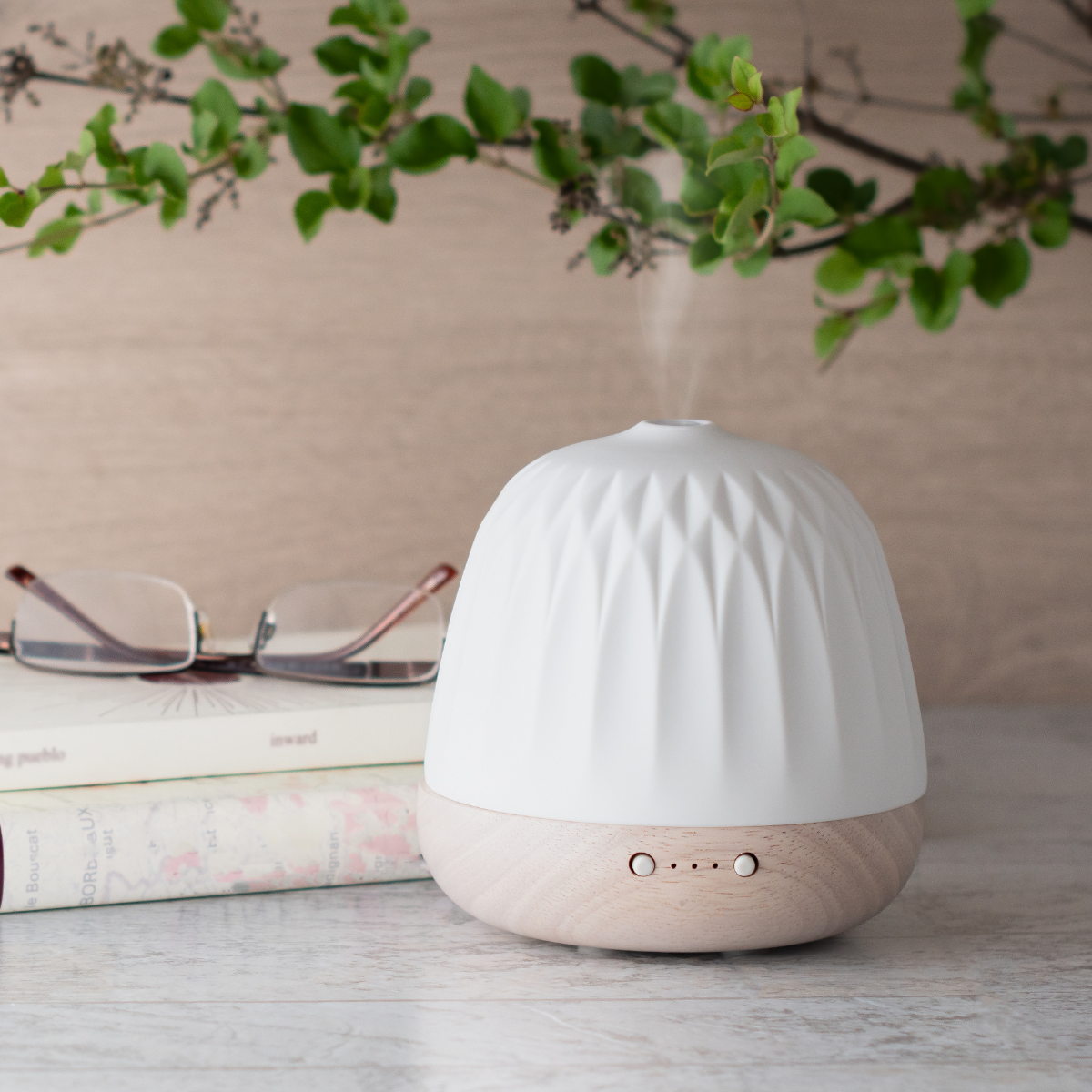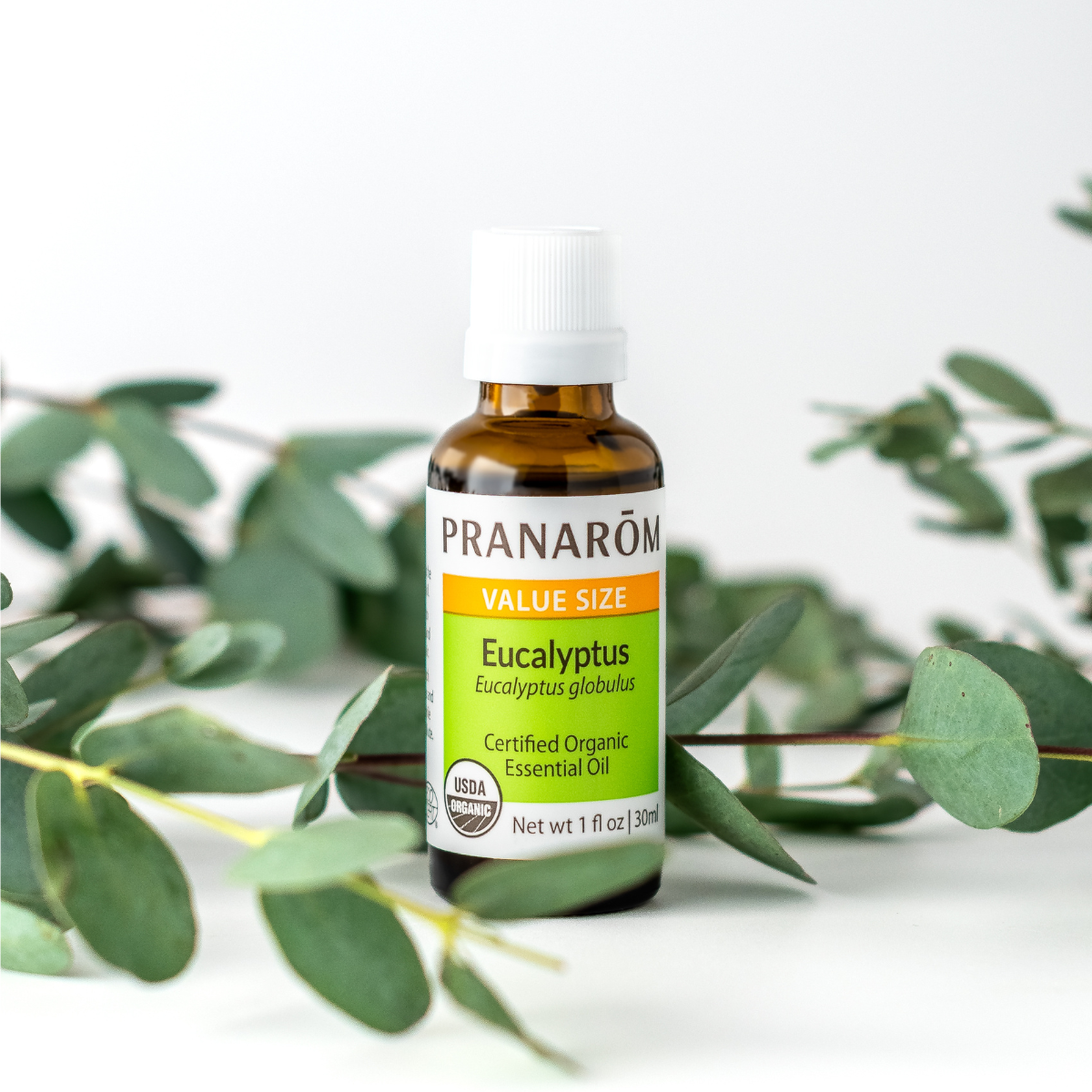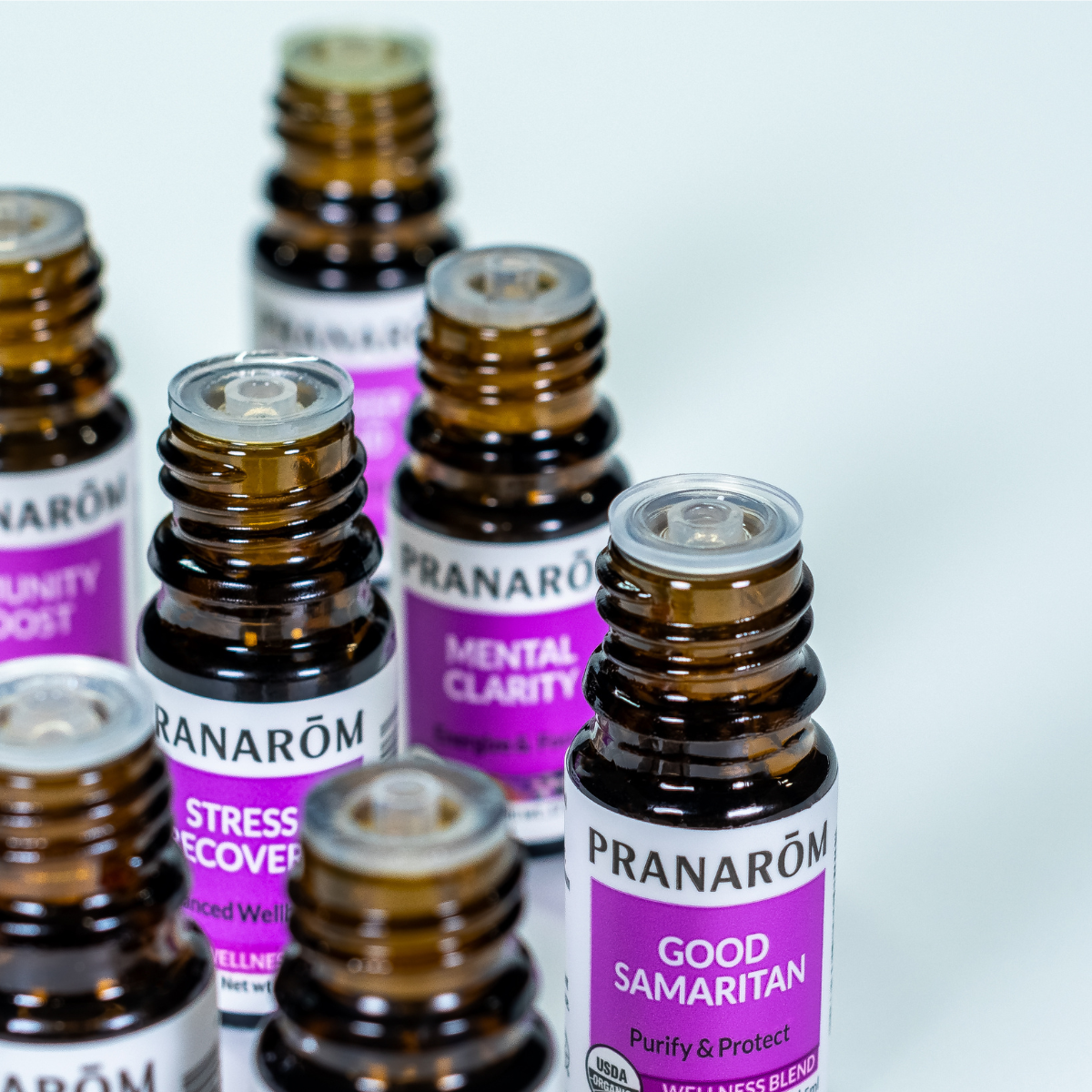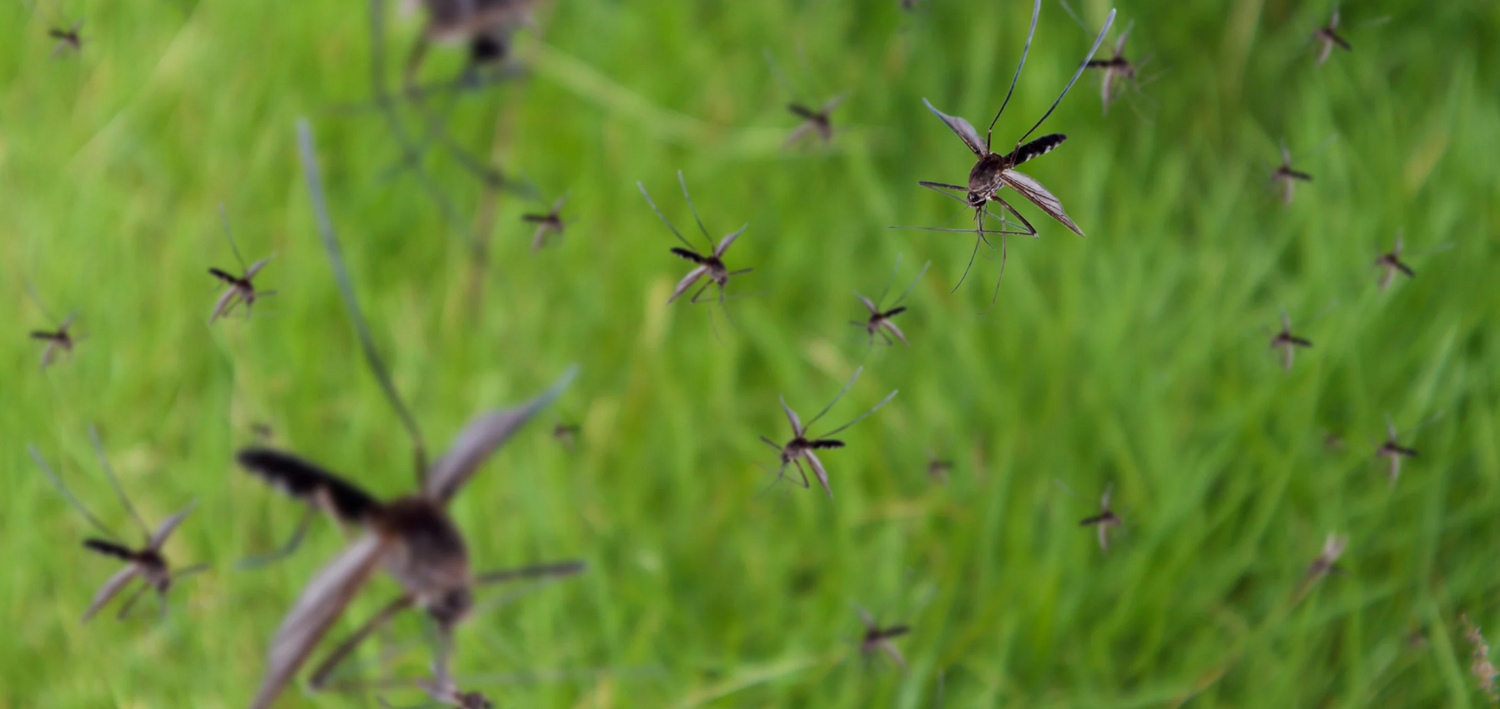During the summer months, bug spray is a must-have for enjoying the outdoors. Insects are an amazing part of the natural world, but mosquito bites are no fun. When you see your typical mosquito repellent on the shelf, it often contains chemicals like DEET, which we want to avoid. There is increasing consumer interest in natural products that deter mosquitoes & are DEET free.
Studies show that various essential oils, including widely available, economic options like clove oil, tea tree oil, and citronella oil have the ability to help repel mosquitoes when they are active ingredients in a natural bug spray. As a bonus, you're spraying something on your skin that actually smells good!
Bugs are attracted to us for a number of reasons, including body heat, sweat & breath (carbon dioxide). According to studies, the repellent efficacy of essential oils has to do with their scent confusing insects' sense of smell. In other cases, as with peppermint and spiders, it has to do with their sense of touch.
Explore with us what scientific research is discovering about different essential oils and how they work to help you avoid unwanted creepy crawlies & insect bites. We'll also cover our Aromashield Outdoor Defense Collection, plus how to create your own natural repellent using organic essential oils.
Different Essential Oils for Different Bugs
Citronella Oil
You can find citronella oil in almost any natural essential oil mosquito repellent on the market today. This is primarily thanks to its naturally occurring compounds of citronellal, geranial, and citronellol. According to a 2015 randomized control study done in Nepal, citronella essential oil not only reduces mosquito bites, but does so without causing irritation to the skin (when properly diluted).(1)(2) You can find Citronella essential oil in all of our Aromashield Defense products: Defense Spray, Kids’ Defense Spray, Forest & Field Defense Spray & Outdoor Defense Diffusion.
Lemongrass Oil
Like citronella oil, lemongrass oil (Cymbopogon citratus) contains citronellal and geranial. It also contains limonene, giving the oil its beautiful, citrus-like scent. In a Thai study done in 2014, lemongrass oil and ylang ylang oil (in an olive oil carrier) were compared to DEET and IR3535. The essential oils provided ~98.8% protection against Culex quinquefasciatus for nearly 170 min—surpassing IR3535 and comparable to 20% DEET.(3)
Clove Oil & Cinnamon Oil
In a study done by New Mexico State University in 2023, twenty active ingredients from the Environmental Protection Agency's (EPA) Minimum Risk Pesticides list were tested for their effectiveness against Aedes aegypti and Ixodes scapularis. To measure complete protection time, they used an approach recommended by the EPA. Of all 20 active ingredients, they concluded that a combination of clove oil and cinnamon oil (in a carrier) "provided the longest protection from both mosquito bites and tick crossings." (4)
Lemon Eucalyptus Oil
Also know as eucalyptus citriodora, lemon eucalyptus contains para-menthane-diol (PMD) and citronellol - two natural compounds that combine to help confuse mosquitos' sense of smell. Oil of Lemon Eucalyptus (OLE) and PMD even show up on the CDC's list of specific active ingredients recommended for protecting against mosquito bites.(5)
Peppermint Oil
Do you have a doorway, corner, or an out of the way space that spiders just love to inhabit? According to a study done in 2017, you should try peppermint oil! (5) Because spiders "smell" with their legs, the icy/hot feeling of peppermint oil's menthol content is distasteful to them. To make your own spray, combine 1oz water with 10 drops peppermint and a drop or two of dish soap. Shake well before spraying into corners and other nooks & crannies. (6)
How To Use Natural Repellent
Spritz your essential oil defense spray over exposed skin and clothing, applying as needed throughout the day. Never spray essential oils near your eyes - if you want to spray it over your hair, be sure to shield your eyes carefully. A great tip is to use a hat - it not only provides a physical barrier to insects, but you can also spritz it with your essential oils.
For more complete protection, be sure to wear proper clothing and gear. Long pants and boots are a must when venturing into thick woods and grasses - spray them with your natural bug spray (especially around the ankles).
Soothing Mosquito Bites
Even with the best protection, let's face it, it's very rare that you'll escape without at least one bite. The great thing is that essential oils can help here, too! Our After-Bite Eraser uses peppermint, lavender, clove & tea tree essential oils, blended for direct topical use, to quickly soothe the affected area of the bite.
For the younger members of the family, our Aromashield Kids After-Bite Eraser has essential oils blended with carrier oils. Each carrier oil included brings its own benefits to the blend, making it more gentle and soothing for sensitive skin. With Pranarom blends, even "inactive ingredients" contribute to the overall effectiveness of the synergy.
Lavender Oil
If we could recommend one essential oil to always have on hand, it would be lavender oil. Not only does it act as a carrier oil for other essential oils (softening blends so that they are skin friendly), but it also soothes the inevitable bites. Plus, rashes and irritation are a given for most outdoor adventures, and having a bottle of lavender oil handy can provide on-the-spot soothing support. You can find this in both our After-Bite Eraser & our Kids After-Bite Eraser.
Peppermint Oil
Peppermint oil's instant cooling sensation is invaluable when it comes to itchy skin. This oil should always be blended with a carrier oil, like lavender or coconut oil, as it can be sensitizing when applied neat.
Clove Oil
Clove oil acts as the Yang to peppermint's Yin in our After-Bite Eraser. Where peppermint oil provides cooling relief, clove oil provides warming relief. Together, their combined icy/hot effect both soothes discomfort and targets redness.
DIY Essential Oil Spray
Are you more of a make it yourself person? If you are, here's how to create your own spray using just five essential oils that you may already have around the house, plus organic witch hazel, water and a spray bottle.
We use witch hazel as a base because it is a natural emulsifier that helps distribute essential oils evenly throughout your mixture. It also has great soothing properties for your skin. Whenever you are creating a blend of essential oils for topical use, lavender oil is a good addition. It softens your blend to make it more skin friendly & it also smells good! Our selection of rose geranium oil, lemongrass oil, lemon eucalyptus oil (eucalyptus citriodora), and peppermint is inspired by the range of scientific studies that are mentioned above, especially those pertaining to mosquitoes. If you're dealing with another specific kind of insect, such a gnats or flies, do a little research into recommended oils and adjust your blend accordingly.
Alternatively, you can also blend the essential oil mixture with a natural oil, like coconut oil, if you prefer that over a spray. Coconut oil has many benefits, including moisturizing and soothing the skin.
Essential oils:
5 drops lavender oil (or basil oil)
5 drops peppermint oil
5 drops rose geranium oil
5 drops lemon eucalyptus oil
5 drops lemon grass oil
Other Ingredients:
15ml witch hazel
Distilled water (roughly 15ml - you'll use this to fill up your 1oz bottle after adding all the other ingredients)
1oz spray bottle
How to make:
Add essential oils and witch hazel to your spray bottle, swirling to combine. Finish with the distilled water, filling your bottle up to the neck. Screw on the spray cap firmly. Shake well before use!
References
(1) Sharma R, Rao R, Kumar S, Mahant S, Khatkar S. Therapeutic Potential of Citronella Essential Oil: A Review. Curr Drug Discov Technol. 2019;16(4):330-339. doi: 10.2174/1570163815666180718095041. PMID: 30019646.
(2) Sajo ME, Song SB, Bajgai J, Kim YJ, Kim PS, Ahn DW, Khanal N, Lee KJ. Applicability of citronella oil (Cymbopogon winteratus) for the prevention of mosquito-borne diseases in the rural area of Tikapur, far-western Nepal. Rural Remote Health. 2015;15(4):3532. Epub 2015 Nov 12. PMID: 26564331.
(3) Soonwera M, Phasomkusolsil S. Efficacy of Thai herbal essential oils as green repellent against mosquito vectors. Acta Trop. 2015 Feb;142:127-30. doi: 10.1016/j.actatropica.2014.11.010. Epub 2014 Nov 28. PMID: 25438256.
(4) Luker HA, Salas KR, Esmaeili D, Holguin FO, Bendzus-Mendoza H, Hansen IA. Repellent efficacy of 20 essential oils on Aedes aegypti mosquitoes and Ixodes scapularis ticks in contact-repellency assays. Sci Rep. 2023 Jan 30;13(1):1705. doi: 10.1038/s41598-023-28820-9. PMID: 36717735; PMCID: PMC9886999.
(5) Centers for Disease Control and Prevention. (2024, August 28). Preventing mosquito bites. U.S. Department of Health and Human Services. Retrieved June 19, 2025, from CDC website: https://www.cdc.gov/mosquitoes/prevention/index.html
(6) Fischer A, Ayasse M, Andrade MCB. Natural Compounds as Spider Repellents: Fact or Myth? J Econ Entomol. 2018 Feb 9;111(1):314-318. doi: 10.1093/jee/tox339. PMID: 29309619.










